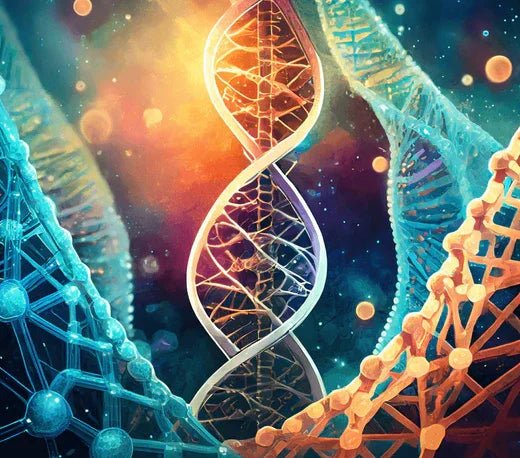Imagine a molecule that holds the key to unlocking our bodies' remarkable ability to repair, rejuvenate, and potentially extend our lifespan. That molecule is nicotinamide adenine dinucleotide (NAD), a vital player in cellular processes that govern our health and well-being.
What is NAD?
NAD, a coenzyme, acts like a helper molecule for enzymes, the tiny workers that carry out countless tasks in our cells. Its name reflects its two components: nicotinamide, derived from vitamin B3, and adenine dinucleotide, a common building block in cells.
NAD's Crucial Roles in Cellular Processes
NAD plays a central role in various cellular processes that are essential for life:
- DNA Repair: NAD is a key player in repairing damaged DNA, protecting our cells from the harmful effects of free radicals and mutations that can lead to aging and disease.
- Metabolism: NAD is crucial for converting food into energy, providing the fuel our cells need for various functions.
- Cellular Communication: NAD facilitates communication between cells, ensuring they can coordinate their activities and maintain healthy functioning.
- Hormonal Regulation: NAD influences the production and function of hormones, which play a vital role in regulating our metabolism, stress response, and other bodily processes.
How NAD Levels Affect Longevity
As we age, NAD levels in our bodies naturally decline. This decline can impair cellular function, leading to an increased risk of age-related diseases such as Alzheimer's, Parkinson's, and heart disease.
The Impact of Fasting on NAD Levels
Fasting, a dietary practice that involves abstaining from food for a period, has been shown to have a significant impact on NAD levels. Studies have demonstrated that fasting triggers a process called autophagy, which involves the cellular recycling of damaged components. This process can lead to an increase in NAD levels, promoting cellular repair and rejuvenation.
Delving into Autophagy: The Cellular Recycling Process
Autophagy, a Greek term meaning "self-eating," is a natural cellular process that involves the breakdown and recycling of damaged or dysfunctional components within cells. This process plays a crucial role in removing cellular waste, maintaining cellular homeostasis, and promoting longevity.
During autophagy, cells engulf and digest damaged organelles, misfolded proteins, and other cellular debris. This process helps to prevent the accumulation of these harmful substances, which can contribute to aging and disease. Autophagy also plays a role in cellular renewal and regeneration, allowing cells to replace damaged components and maintain their youthful vigor.
Fasting and Autophagy: A Synergistic Relationship
Fasting has been shown to induce autophagy, leading to increased NAD levels and cellular rejuvenation. During fasting, the body shifts its energy source from glucose derived from food to ketone bodies produced from stored fat. This metabolic switch stimulates the production of autophagy proteins, initiating the cellular recycling process.
Autophagy also plays a role in protecting cells from damage caused by oxidative stress, a process that generates harmful free radicals that can damage DNA and proteins. By promoting autophagy, fasting helps to counteract the effects of oxidative stress, further enhancing NAD levels and promoting cellular health.
Autophagy and Longevity: A Promising Link
The activation of autophagy through fasting and other interventions is a promising strategy for promoting longevity. By supporting cellular repair and renewal, autophagy may help to prevent age-related diseases and extend our healthy lifespan.
As research continues to explore the mechanisms of autophagy and its relationship to NAD, we may uncover more ways to harness this process to enhance our overall well-being and unlock the true potential of human longevity.
The Connection Between NAD and Longevity
The maintenance of healthy NAD levels is crucial for longevity. By enhancing NAD production, fasting may potentially extend our lifespan by protecting our cells from damage and promoting cellular regeneration.
Conclusion: NAD and the Quest for Longevity
NAD is a fascinating molecule with profound implications for our health and longevity. By understanding its role in cellular processes and exploring strategies to maintain or boost NAD levels, we may be able to unlock new avenues for maintaining youthfulness and extending our healthy lifespan. As research continues to unravel the mysteries of NAD, we may one day harness its power to live longer, healthier, and more fulfilling lives.

Share:
The Power of Balance: Unleashing the Benefits of Zone 2 Workouts
Unlocking Longevity 2024: Practical Tips and Routines for a Longer, Healthier Life